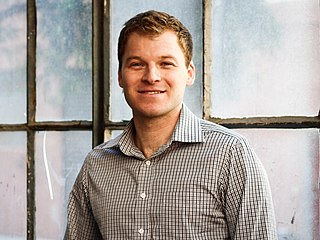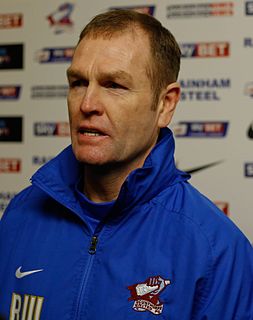A Quote by Trip Adler
The reason we make money is because we have a few different business models. One is ads: we get incredibly high click rates because most people on Scribd are searching the site for something, or they came from a search engine, and they're looking for something specific.
Related Quotes
Someone who can search for something is happy. Searching gives a meaning to life. Nowadays it’s not so easy to find something you might be looking for. The most important thing, however, is the search itself, the way you take. It’s not so important where it leads. that’s why my characters are always looking for something, maybe only a cat, a sheep or a wife, but that is at least the beginning of a story.
Vertical search engines that match your business, service or products with a target market offer you a higher conversion rate than traditional search engines. Because they have already qualified their interest by coming to a search engine with a specific focus, searchers will be more receptive to targeted advertising.
This intelligence, or what I'll call "the wisdom of crowds," is at work in the world in many different guises. It's the reason the Internet search engine Google can scan a billion Web pages and find the one page that has the exact piece of information you were looking for. It's the reason it's so hard to make money betting on NFL games, and it helps explain why, for the past fifteen years, a few hundred amateur traders in the middle of Iowa have done a better job of predicting election results than Gallup polls have.
Technology isn't simply addictive - it's addictive because it's a servant to business incentives. There are huge departments in these companies that are devoted to this and staffed by incredibly talented people who have skills that could be put to socially beneficial projects but who are now trying to find out how to make you click and how to maximize your time on a certain site, or encourage teenagers to "friend" more products and constantly engage with them.
The truth is that all civic and social change is friction. Politics is friction. The only way you can bend the arc of history is to create that kind of friction, which is something that makes most people incredibly uncomfortable but which, for whatever reason, because of my upbringing or because of my genetics, is something that doesn't bug me.
I came to the conclusion that most people in America would really like to be able to get a job where they think they're doing something noble and nice and good and it isn't just for the money. But the reason they hate what they call the cultural elite is that they see it as a class that's grabbed all the jobs where you can get paid to do something that isn't just for the money - if it's art, if it's charity, if it's intellectual, if it's political, whatever it might be.
If I do something I think is new, it will be misunderstood, but if people like it, I will be disappointed because I haven't pushed them enough. The more people hate it, maybe the newer it is. Because the fundamental human problem is that people are afraid of change. The place I am always looking for-because in order to keep the business I need to make a little compromise between my values and customers' values-is the place where I make something that could almost-but not quite-be understood by everyone.
We live in a global market and money's fungible and hedge fund private equity is looking for momentum plays, and there ain't no momentum plays in bonds, right? When the interest rates were spiking up or down, well they never really spike down they do spike up though. Something's got to happen, there's got to be motion, the dice has to be rolling on the board, and if it's not then they're not going to play because they're not going to get the adrenaline rush from looking at... you know, money markets fund interest rates or bond interests or whatever. It's got to be sexy.
An electronic paper has infinite space because you can bring forth as much content as a reader wants. And the resolution of ads is very high. And when you touch the ad you can interact with the advertiser and the paper will take you to the advertiser's Web site and you can get more information. So ideally there should be a better connection between the ads you're shown and what you're actually interested in.

































